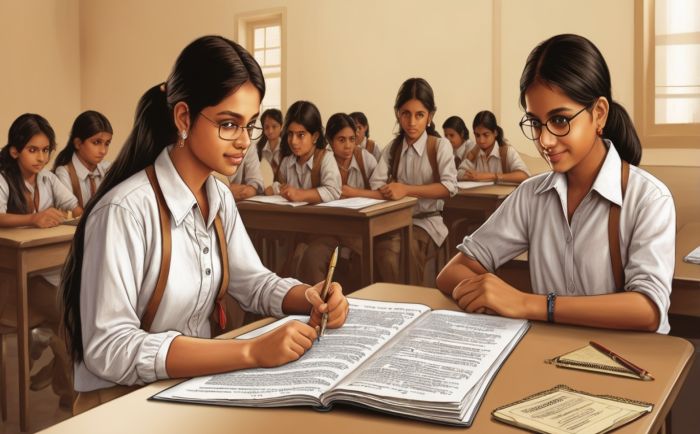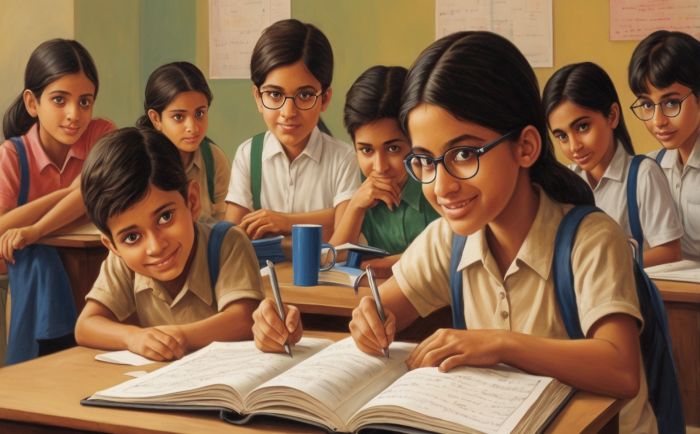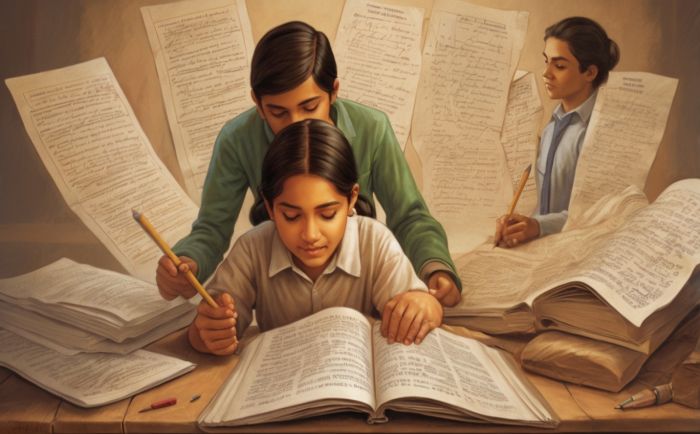Indian Certificate of Secondary Education: Massive Growth Tips

Indian Certificate Secondary Education is your path to success. Gain powerful strategies for scoring high. Act now to make your academic journey amazing.
Today, let’s talk about the Indian Certificate of Secondary Education (ICSE), a well-known and respected exam in India, managed by the Council for the Indian School Certificate Examinations (CISCE).
I remember my younger cousin, Riya, preparing for her ICSE exams a few years ago. She was so dedicated and focused. Watching her study, I saw how the system encourages deep learning and critical thinking. In this post, I’ll share some helpful insights into ICSE, which might help you decide if it’s the right choice for your child.
1. Introduction
The Indian Certificate of Secondary Education (ICSE) has been around since 1958. It’s a widely respected qualification both in India and internationally. The exam is conducted by CISCE and is known for its in-depth and balanced approach to education.
When I was in school, many of my friends chose ICSE. Although it wasn’t always easy, it helped them build a strong knowledge base and life skills. ICSE encourages more than just memorization; it teaches students how to apply what they’ve learned, which is why so many students prefer this board.
2. Structure and Subjects of ICSE
ICSE is known for its detailed syllabus, which goes beyond just exam preparation. It helps students grow in many aspects of life. The syllabus includes subjects like Mathematics, Science, Languages, and Social Studies. Students can also pick electives based on their interests.
For example, my cousin Riya chose French as her second language and Computer Science as an elective. This made her learning experience more engaging and fun.
Subjects Offered in ICSE
| Subject | Group 1 (Compulsory) | Group 2 (Elective) | Group 3 (Additional) |
| English | English Language | Hindi, French, German | Art, Physical Education |
| Mathematics | Mathematics | ||
| Science | Physics, Chemistry, Biology | Computer Science | |
| Social Science | History, Geography | ||
| Second Language | Hindi, French, etc. |
The core subjects in ICSE include English, Mathematics, Science (Physics, Chemistry, Biology), and Social Science. Students can pick electives like Computer Science or Environmental Science, and some schools offer fun subjects like Art or Physical Education.
3. Benefits of ICSE

ICSE offers a well-rounded education. It’s not just about academics; it focuses on helping students develop into balanced individuals. I’ve seen many ICSE students excel in various fields, from engineering to business. The board encourages problem-solving and critical thinking, which are vital skills in the real world.
For example, my friend Arjun, who completed ICSE, went on to study engineering. He often says that ICSE taught him how to apply his knowledge in real-life situations, which helped him in college.
4. How ICSE Differs from Other Boards
If you’re considering CBSE or a State Board, you should understand how ICSE stands out. ICSE is known for being more detailed and challenging compared to other boards. ICSE students tend to have a deeper understanding of their subjects. While CBSE focuses more on general knowledge, ICSE goes deeper into topics.
One of my friends, who studied in a CBSE school, said ICSE was harder, but it made her more disciplined. She believes the effort was worth it because it helped her think more critically.
5. The Examination Process for ICSE

ICSE exams are tough. I remember how stressed my cousin was about her exams, but I reminded her that these exams focus on understanding, not just memorizing. The exams are held every year in March and last for a few weeks, depending on the subjects chosen.
ICSE Exam Schedule (Sample)
| Date | Subject | Duration |
| March 1 | English Paper | 3 hours |
| March 3 | Mathematics | 3 hours |
| March 5 | Physics | 2 hours |
| March 7 | Chemistry | 2 hours |
| March 9 | Biology | 2 hours |
The exams include both written papers and practical exams for some subjects. The practical exams, especially in Science and Computer Science, help connect theory to real-life situations. This practical assessment also helps reduce exam stress.
6. The Importance of ICSE in Higher Education
ICSE is recognized by universities worldwide, making it easier for students to apply to colleges abroad. This was a huge advantage when I applied to international universities. ICSE’s global recognition made the process smoother.
For my friend Neha, ICSE was essential when applying to colleges in the U.S. Her ICSE certificate opened many doors and made the transition to studying abroad easier.
7. Challenges Faced by ICSE Students

Despite its benefits, ICSE can be overwhelming because of its detailed syllabus. I’ve seen students, including my cousin, stress over the vast content they have to cover. ICSE requires continuous effort, and the pressure can build up as exams approach.
One common challenge is managing time. Balancing studies with extracurricular activities can be tough. Creating a study plan is essential to handle all aspects of life. Managing stress during exams is something all ICSE students face.
8. Tips for Preparing for the ICSE Exam
If you’re planning to take the ICSE exam, my best advice is to start studying early. Spacing out study sessions helps you remember more. Also, don’t just memorize. Understand the concepts, especially in Science and Mathematics.
My cousin Riya, who followed a well-organized study plan, swears by practicing past exam papers. It helps you get used to the exam pattern and improves time management. Focus on tough topics but revise regularly to keep everything fresh in your mind.
9. Role of ICSE in Career Development
ICSE provides a strong foundation for various career paths. It prepares students for professional studies with skills like analytical thinking, in-depth learning, and problem-solving. Many of my classmates say that ICSE helped them succeed in their careers.
ICSE students have an edge in competitive exams because they know how to apply what they’ve learned. Riya, for example, is studying Engineering and credits her ICSE background for helping her with subjects like Physics and Mathematics.
10. How ICSE Prepares Students for the Future
ICSE teaches important skills like critical thinking, problem-solving, and communication, which are essential in today’s world. It helped me feel more confident when facing challenges, as ICSE taught me to think analytically.
For students like Riya, who are continuing their education, ICSE prepares them to work independently and manage time well. These skills will be valuable in college and beyond.
11. The Global Recognition of ICSE
ICSE is globally recognized, making it easier for students who want to study abroad. This recognition was a major benefit when I applied to international universities. ICSE’s credibility made the whole process smoother.
Neha also benefited from this global recognition when applying to top universities. It helped her transition smoothly into her chosen institution.
12. Conclusion: The Significance of ICSE
In conclusion, ICSE is more than just an exam. It’s an investment in a student’s future, providing a solid academic foundation, life skills, and preparation for higher education and beyond. I’ve seen how ICSE has shaped students into successful professionals, and I believe it can do the same for you or your child.
ICSE is not an easy path, but the rewards are definitely worth it. Stay focused and stay consistent, and you’ll reap the benefits of this challenging but rewarding journey.
FAQs
1. What is the Indian Certificate of Secondary Education (ICSE)? The Indian Certificate of Secondary Education (ICSE) is a school examination for students in India, recognized for its comprehensive curriculum and focus on academic excellence.
2. How can I succeed in the Indian Certificate of Secondary Education? To succeed in the Indian Certificate of Secondary Education, focus on effective study techniques, regular revisions, and understanding the core concepts thoroughly.
3. What are the benefits of the Indian Certificate of Secondary Education? The Indian Certificate of Secondary Education provides a solid foundation for higher studies, offering a globally recognized qualification with a focus on overall development.
4. Can I apply for colleges with the Indian Certificate of Secondary Education? Yes, the Indian Certificate of Secondary Education is widely accepted by universities in India and internationally, offering numerous opportunities for further studies.
5. How important is the Indian Certificate of Secondary Education for my future? The Indian Certificate of Secondary Education is crucial as it builds academic credibility, helping you gain admission to reputed colleges and universities globally.




